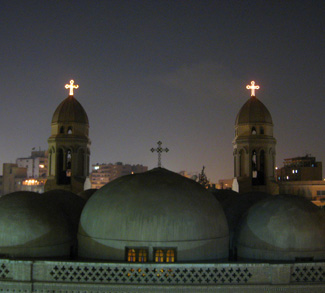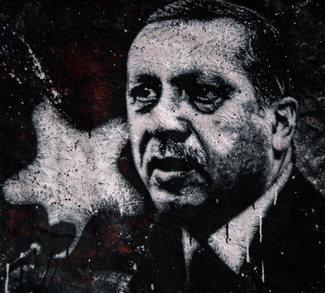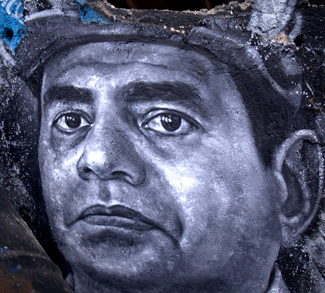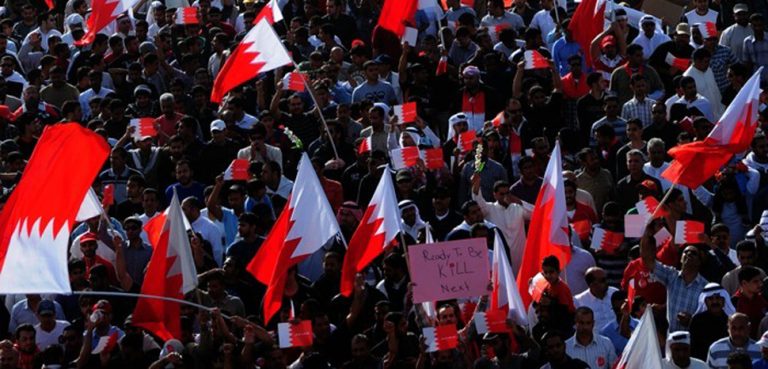Last month’s assault on a Coptic church in Cairo’s district of Al-Warraq was the latest of a series of attacks targeting Egypt’s Christian community. While the aggression has drawn strong condemnation in the country, with investigations into the shooting still ongoing, very few are seriously questioning why the security apparatus could not prevent it.
As some Egyptian media were quick to report that security forces arrested several suspects over the Al-Warraq church shooting – reports later denied by the Ministry of Interior – the bloody attack claimed its fifth death along with 18 injured.
Egypt’s churches are not new to assaults. Many claim such attacks have been fuelled by the anti-Christian rhetoric adopted by Islamist forces, accusing Coptic Christians of supporting the armed forces in the overthrow of President Morsi.
The wave of retaliatory acts against Copts began just after the Morsi’s ouster on 3 July. A surge of violence came after two major Islamist sit-ins were violently dispersed by security forces in mid-August. Estimates counted over 200 Christian properties attacked and at least 42 churches damaged across Egypt.
Whether the Brotherhood, their Islamist allies, or any specific groups are linked to such attacks, there’s little concern – at least outside the Coptic community – with what part the state plays in all this.
Al-Warraq’s prosecution proceeded with an investigation revealing that security forces stopped protecting the church in mid-August due to a lack of weapons, according to Al-Ahram’s Arabic website.
The administrative director of Al-Warraq parish revealed that the security personnel in charge of guarding the Coptic church were not present during the assault. The church official told prosecutors he saw the guards leave the building when he heard shots being fired, AsiaNews on-line reported.
The Maspero Youth Union, a coalition of Coptic activists, slammed the government for bearing responsibility of the killings. The day after the Warraq assault, the group issued a statement on their Facebook page saying: “The killing and threatening of Copts in front of the church is the responsibility of the cabinet and of Prime Minister Hazem El-Beblawi.”
Representatives of the union voiced demands that included the resignation of the interior minister for failing to protect Christians, as well as charges being laid against him and local security officials in Warraq. The coalition also called for the implementation of a security plan to protect other churches from similar attacks.
In a press statement following the Warraq incident, the National Alliance to Support Legitimacy held the Ministry of Interior responsible for “neglecting the security of Egyptian citizens.” The Brotherhood-led alliance also criticized the lax security of the police while, on the same day, security forces were busy persecuting students inside the Al-Azhar university campus.
Demanding a quick investigation to apprehend the perpetrators, or granting compensation for the victims’ families, cannot be the only steps taken. Too few Egyptians ask themselves why no one intervened at the time of the attack, and what should be done to ensure other church attacks are not repeated.
Despite the fact that Copts had informed the government about threats they had received, it did not make a move. And despite numerous calls, police and ambulances only arrived on the scene two hours after the shooting, witnesses in Al-Warraq told AsiaNews on-line.
The Al-Warraq case reopens the controversy about the responsibilities of police officers and members of the army in Egypt.
Human Rights Watch published an online statement on 22 August saying that police and military units had failed to intervene in the vast majority of the church attacks documented by the human rights organisation.
Since attacks have repeatedly occurred with impunity, the Revolutionary Socialists – one of the rare outspoken voices of dissent- have started to complain that “the state deliberately fails to fulfil its role towards the protection of the property and the churches of Copts.”
The Revolutionary Socialists called for the dismissal of the entire government. The movement highlighted the need for passing a unified law for houses of worship. It also demanded the formation of popular committees to protect churches and religious minorities.
While Egypt’s current government wages its ‘war on terror,’ there’s no rule of law or any security in place to protect the Christian community. Without enforcement of the rule of law, Egypt is set to see more crimes like Warraq.
With that in mind, Egyptian law enforcement officials need to be held equally accountable for failing to protect the lives and property of Christians.
Any investigations or arrests of suspected assailants will go in vain so long as the very security apparatus is exempted from all involvement.
Although authorities have begun investigating the security forces who were supposed to be responsible for protecting Al-Warraq church, none of the local security officials have been brought to justice until now.
Less likely is a government’s response showing any effort to put a security plan into effect to stop attacks directed at churches.
Egyptian Coptic churches remain targeted, and the military and police continue to be incapable of providing adequate protection. And very few seem willing to denounce the unchanged negligence of state institutions, or to call upon the government to do everything in its power to stop such acts of violence.
The opinions, beliefs, and viewpoints expressed by the authors are theirs alone and don’t reflect any official position of Geopoliticalmonitor.com.




